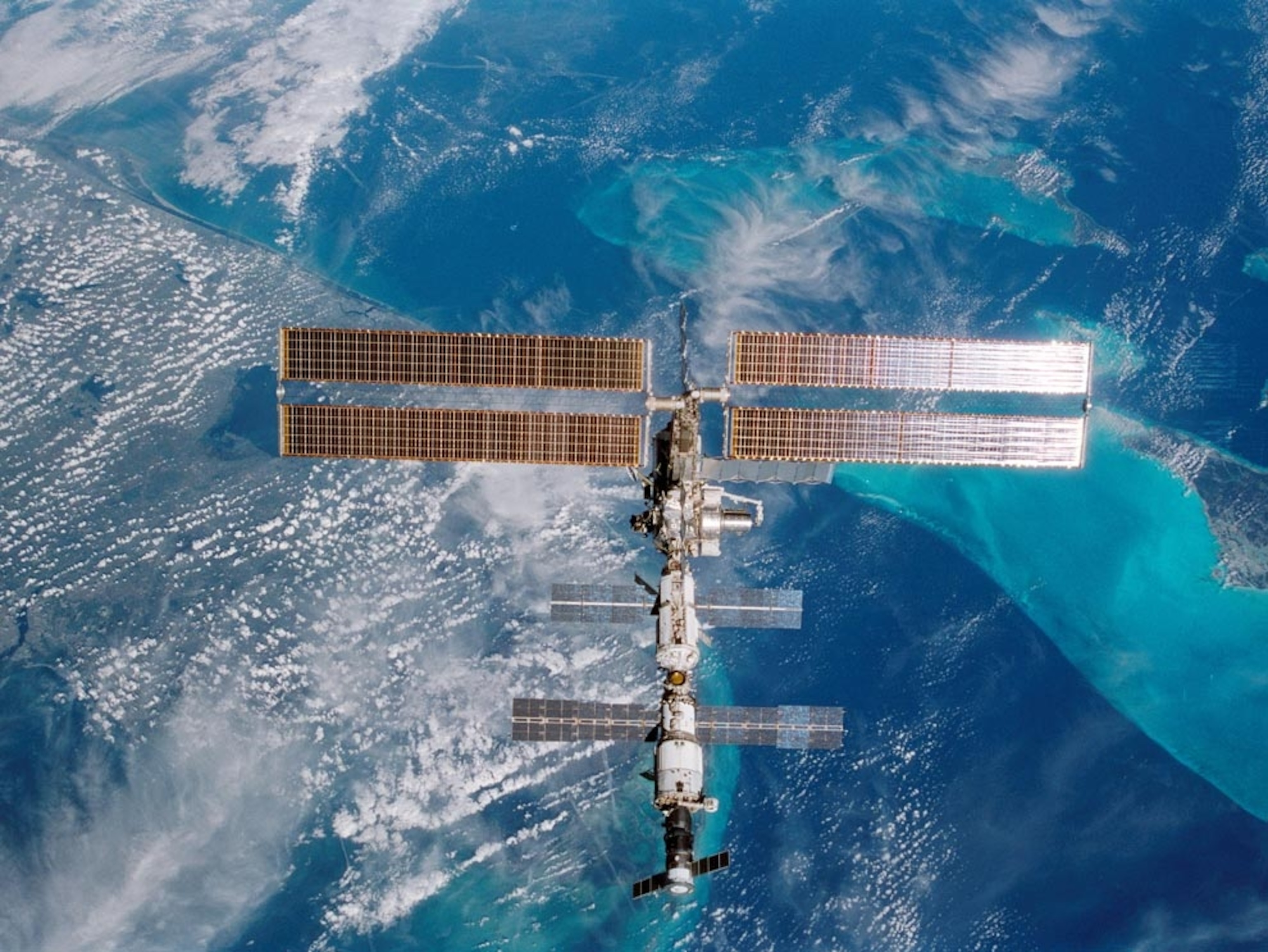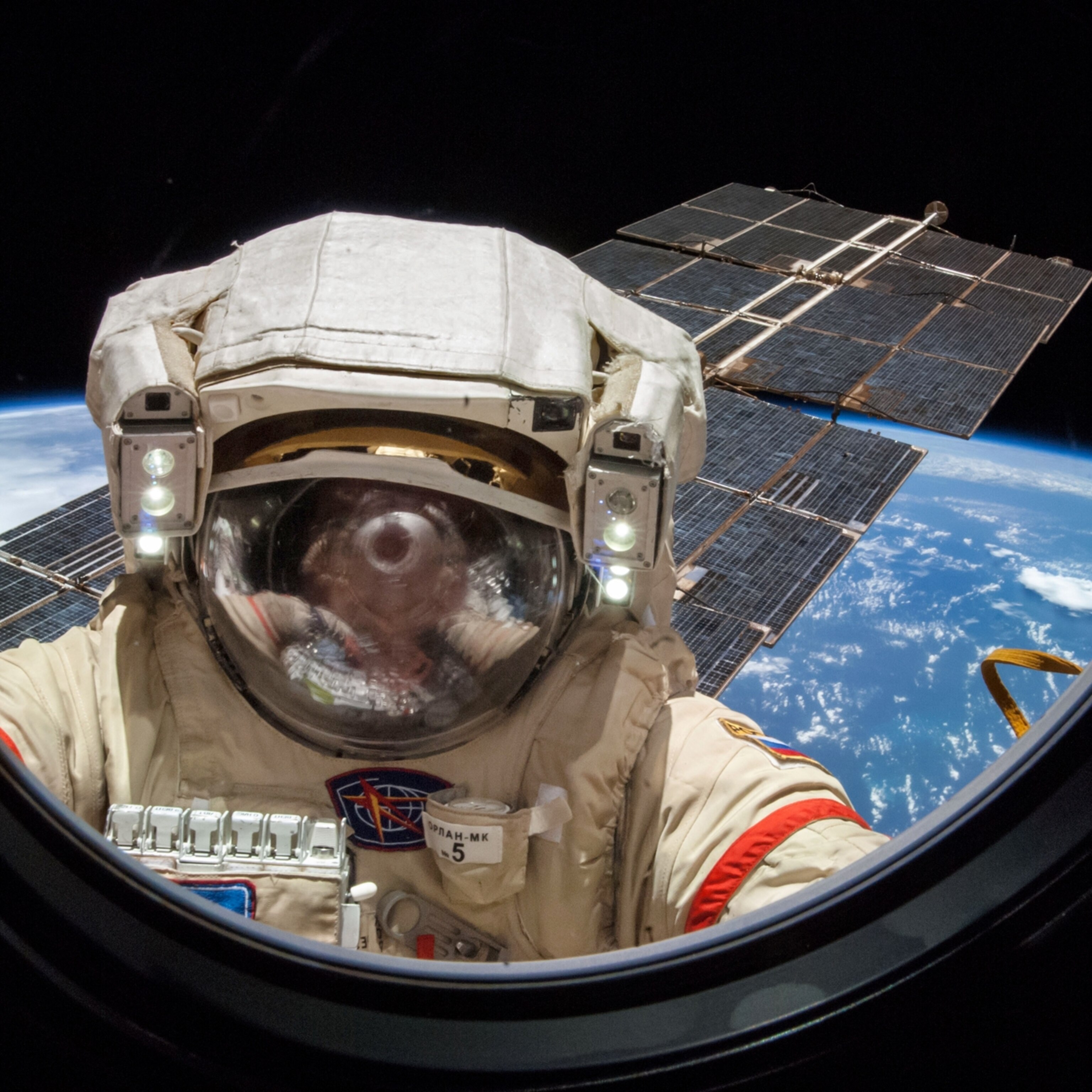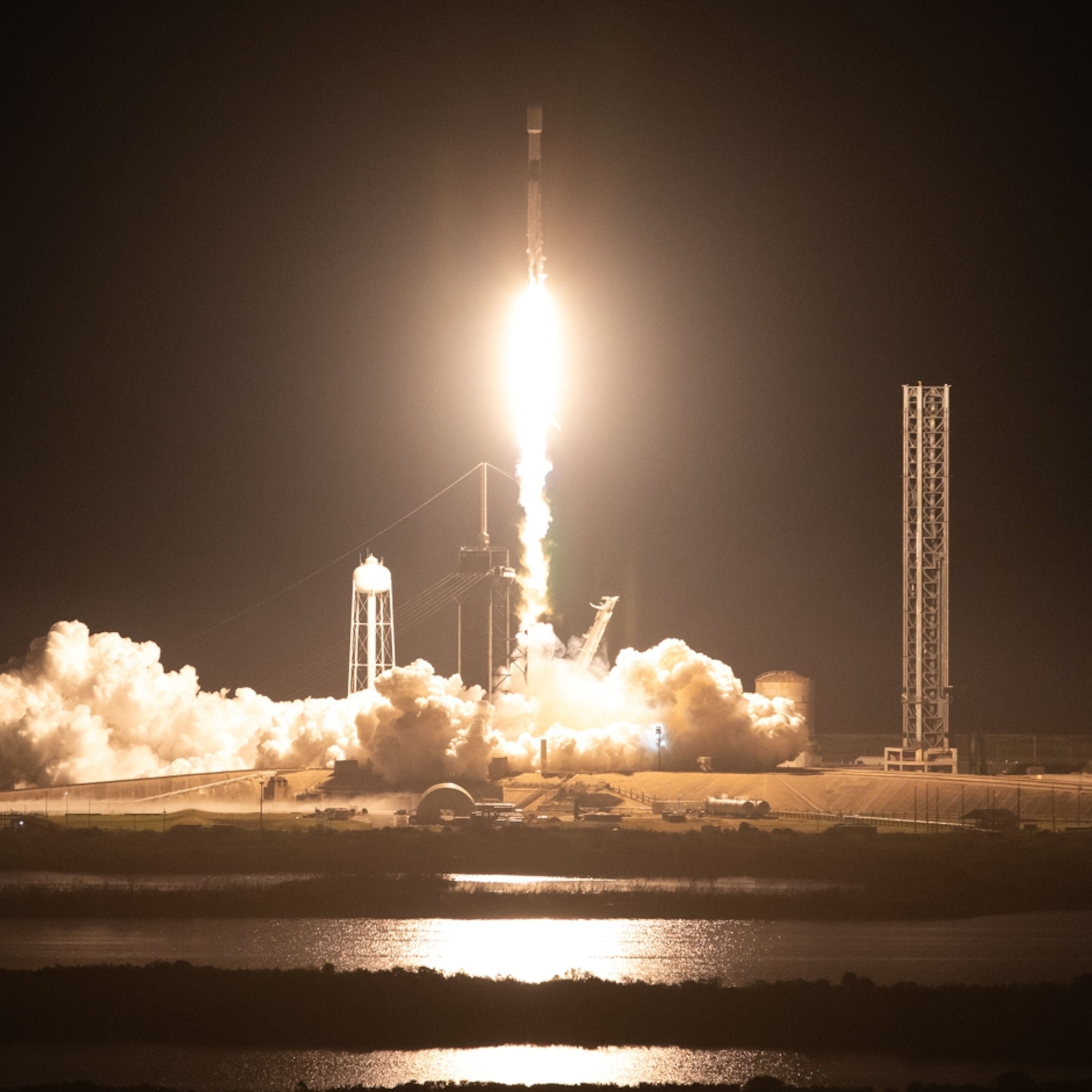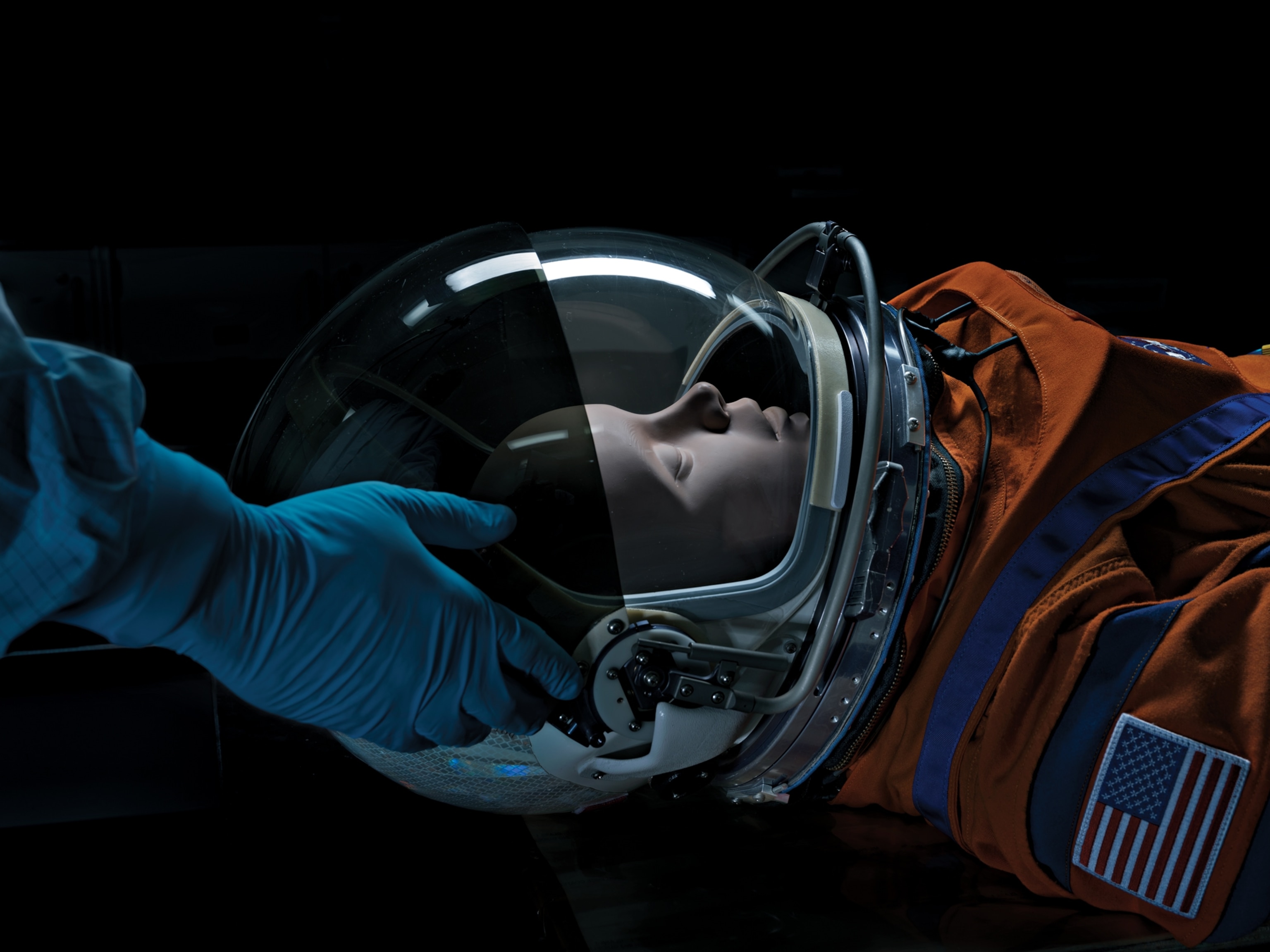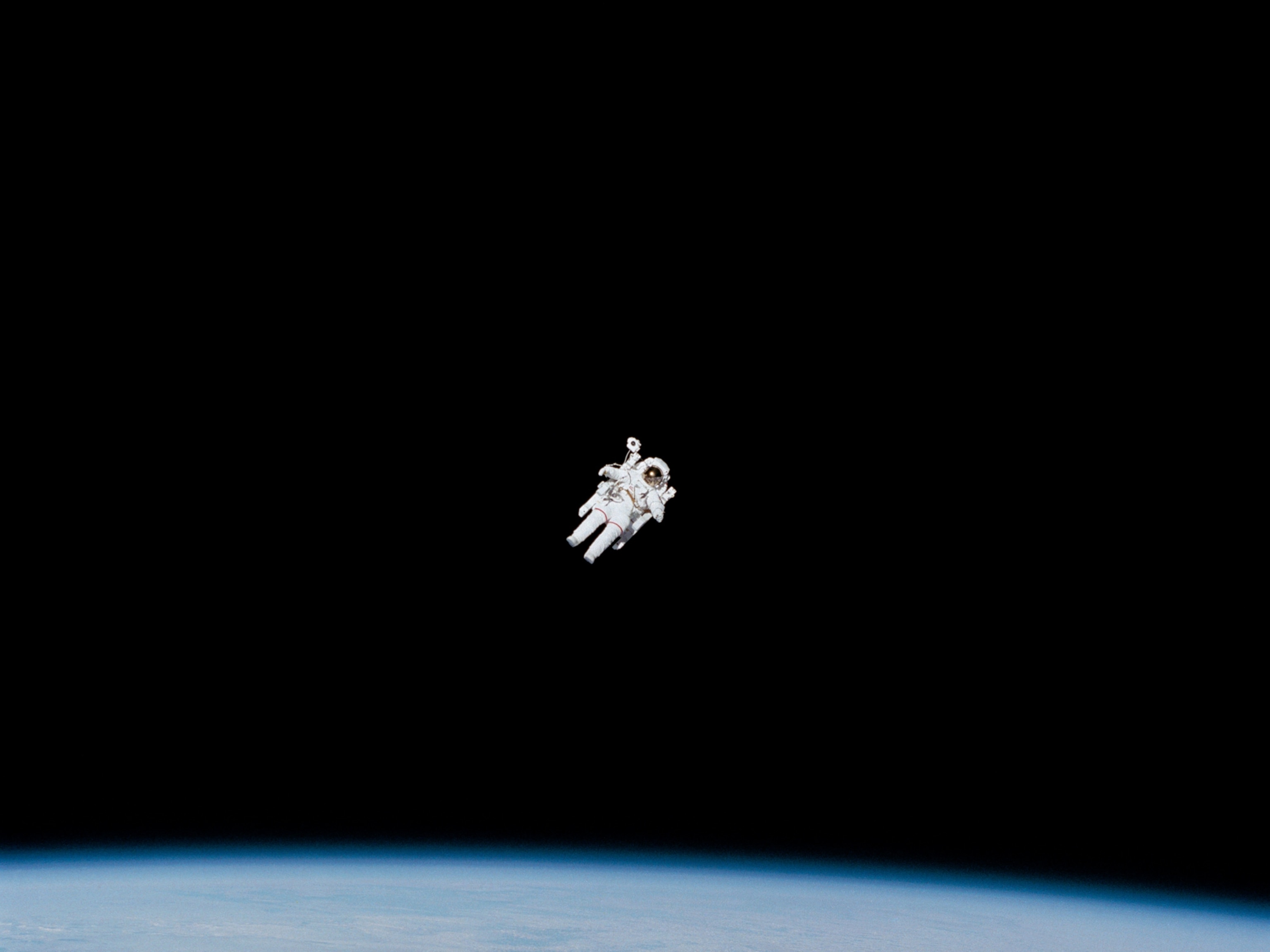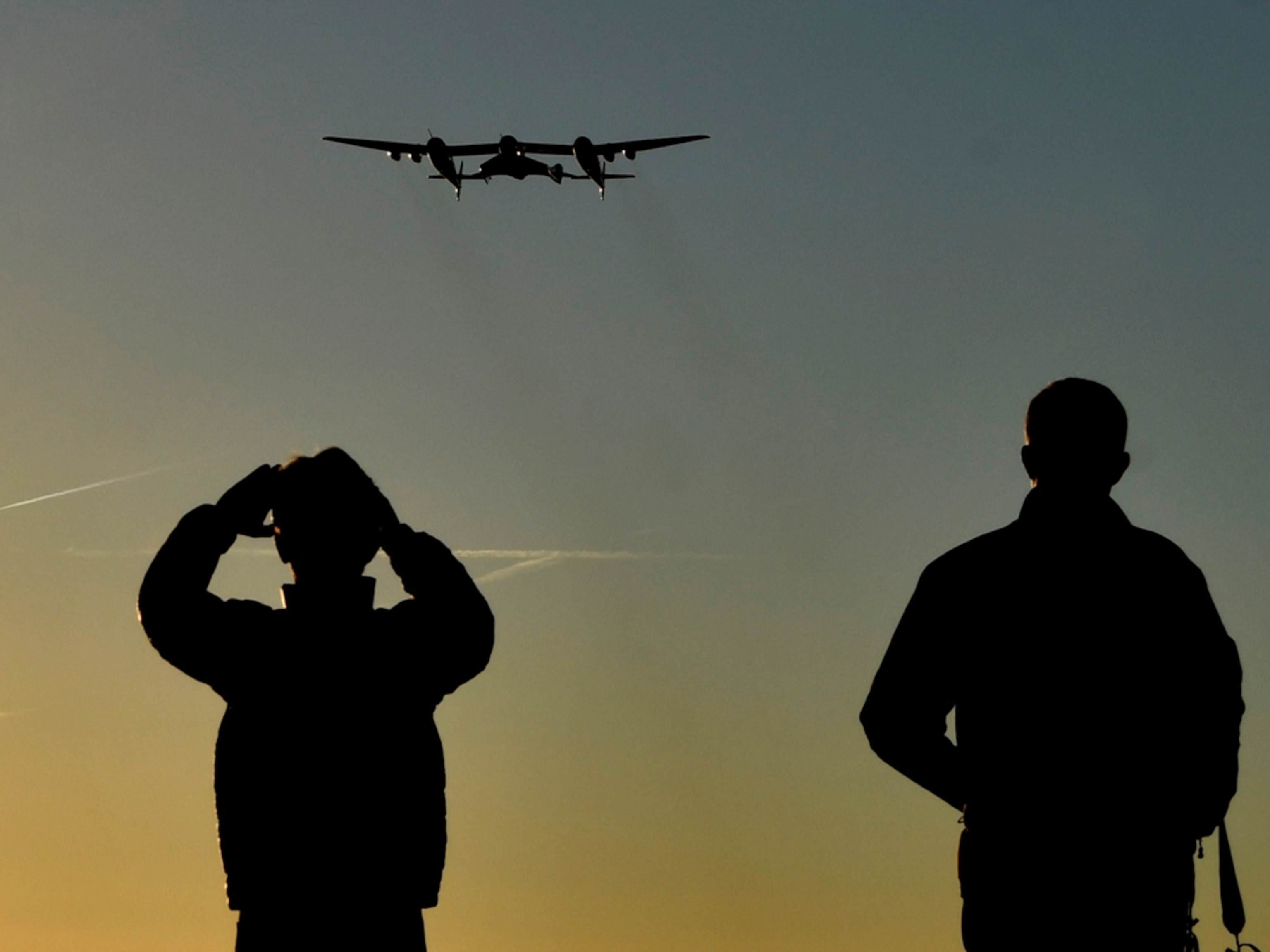
Cosmonaut brains show space travel causes lasting changes
A new study of Russian space travelers adds to evidence that life among the stars has many consequences.
Our fleshy forms evolved to work within the tug of gravity. Take that pull away, and the clockwork operation of bodily functions just doesn't keep ticking at the same steady beat. From fluids floating the wrong way to DNA expressing differently, space travel is tough on even the healthiest human body.
Now, a study of recently active cosmonauts adds to the concern for one particularly vital organ: the brain. The results suggest that deformations to brain tissue caused by weightless conditions can linger even after space travelers have had their boots back on Earth for seven months.
The research, published this week in the New England Journal of Medicine, documents the impacts of space travel on cosmonauts who each spent roughly 189 days on the International Space Station. Led by scientists at the University of Antwerp, the team captured images of 10 male cosmonauts' brains using magnetic resonance imaging before and after each mission. They repeated the scans seven months later for seven of these space adventurers.
As previous studies have demonstrated, spaceflight seemed to increase the noggin's cerebrospinal fluid, a clear liquid that acts as a cushion for your brain during motion or impacts and helps maintain the correct pressure.
“We were designed for standing in gravity on Earth, and once that force is released, all the bodily fluids move upward,” says study author Peter zu Eulenburg of the Ludwig Maximilian University of Munich. The latest study suggests that the excess cerebrospinal fluid seems to compress the brain's grey matter—the dark-colored neural tissue that contains nerve fibers and nerve-cell bodies. Though the brain largely bounced back after seven months on Earth, some effects seemed to linger.
The brain's white matter, which is primarily made of nerve fibers, initially appeared unchanged. Yet in the months after the cosmonauts' return to Earth, the volume seemed to shrink. The researchers speculate that the culprit is again cerebrospinal fluid. For the white matter, the increased pressure from the fluid may have forced some of the free water normally in the brain into the delicate white matter structure. Once the cosmonauts returned to Earth, the pressure lessened, water escaped, and white matter appeared to shrink.

Additional research is needed to determine what, if anything, these physical changes mean for cognition or psychological health. But the latest study adds to mounting evidence that life among the stars can have enduring consequences on Earth-born adventurers. Here are some of the other biological changes people headed to orbit—and maybe one day deeper into space—will need to prepare for.
Floaty fluids flatten eyeballs
Changes in cerebrospinal fluid may have another concerning effect: blurred vision. This is a common complaint of astronauts returning to Earth, and scientists initially blamed the problem on fluids floating up through the body in low-gravity living. NASA estimates that during twin astronaut Scott Kelly's 340 days in space, a two-liter soda bottle's worth of fluid traveled from his legs to his head. This effect often gives space travelers a puffy face that scientists thought might account for the eye problems.
But in 2016, researchers pinned the problem on one particular culprit—extra cerebrospinal fluid can also put pressure on the back of the eyeball, flattening the bulbous organ and causing the optic nerve to bulge. For some space travelers, returning to Earth's familiar gravitational pull resharpens their vision. But as this latest study shows, not all the cerebrospinal fluid normalizes after landing. Because of this, it seems, not all astronauts are so lucky, and there are few known treatments for space-blurred sight.
DNA differences
Earlier this year, alarming headlines about Scott Kelly's mutated DNA began making the rounds, and even Kelly himself was surprised at the news. “What? My DNA changed by 7%! Who knew? I just learned about it in this article,” Kelly tweeted. “This could be good news! I no longer have to call [Mark Kelly] my identical twin brother anymore.”
While his DNA didn't actually mutate—and his identical-twin status certainly never wavered—space did seem to impact the expression of some of his genes.
The strings of letters that make up your genes are largely useless on their own. Instead they're like blueprints for the many proteins that make up your body. To actually build something, or be expressed, certain genes must be switched on. Spaceflight seems to impact the level of this expression for some genes—especially those that play a role in the immune system, DNA repair, and bone growth. Changes to seven percent of these genes persisted for six months after Kelly returned to his home planet, according to a NASA study.
Measly muscles and brittle bones
Gravity forces Earth-bound bodies to work a surprising amount, even when you're binging Netflix on the couch. But such forces no longer apply in space. This means muscles quickly grow measly and bones become more prone to breakages. Astronauts can lose roughly one to two percent of their bone mass each month, with the greatest losses in their lower backs and legs. This loss increases blood calcium and thus the risk of kidney stones.
Scientists have been aware of these dire impacts for a while, and residents of the International Space Station vigorously exercise to counteract muscle and bone loss in low-gravity life. Diet changes, with emphasis on calcium- and vitamin D-rich foods, also help reduce the risk. (Learn about why glove design can also cause astronauts' fingernails to fall off.)
But there's only so many ways that space dwellers can work out—and there's still a readjustment period once they're grounded on Earth. “Just holding my head up is a bizarre new experience,” astronaut Chris Hadfield told CBC News after his 2013 stay on the ISS. “I haven’t had to hold my head on top of my neck for five months.”
Springy space sperm
Though there are many negative effects of space, there's one thing future space travers may not have to worry about: baby making. One 2017 study found that after nine months in orbit, freeze-dried mouse sperm could still produce healthy litters of baby mice.
Of course, having sex in space may still pose a problem. No one has yet admitted to testing this, but the low-gravity physics are not in our favor. Still, the results of the mouse study suggest that assistive reproductive technologies could help future generations populate other planets.
Related Topics
You May Also Like
Go Further
Animals
- Octopuses have a lot of secrets. Can you guess 8 of them?
- Animals
- Feature
Octopuses have a lot of secrets. Can you guess 8 of them? - This biologist and her rescue dog help protect bears in the AndesThis biologist and her rescue dog help protect bears in the Andes
- An octopus invited this writer into her tank—and her secret worldAn octopus invited this writer into her tank—and her secret world
- Peace-loving bonobos are more aggressive than we thoughtPeace-loving bonobos are more aggressive than we thought
Environment
- Listen to 30 years of climate change transformed into haunting musicListen to 30 years of climate change transformed into haunting music
- This ancient society tried to stop El Niño—with child sacrificeThis ancient society tried to stop El Niño—with child sacrifice
- U.S. plans to clean its drinking water. What does that mean?U.S. plans to clean its drinking water. What does that mean?
- Food systems: supporting the triangle of food security, Video Story
- Paid Content
Food systems: supporting the triangle of food security - Will we ever solve the mystery of the Mima mounds?Will we ever solve the mystery of the Mima mounds?
History & Culture
- Strange clues in a Maya temple reveal a fiery political dramaStrange clues in a Maya temple reveal a fiery political drama
- How technology is revealing secrets in these ancient scrollsHow technology is revealing secrets in these ancient scrolls
- Pilgrimages aren’t just spiritual anymore. They’re a workout.Pilgrimages aren’t just spiritual anymore. They’re a workout.
- This ancient society tried to stop El Niño—with child sacrificeThis ancient society tried to stop El Niño—with child sacrifice
- This ancient cure was just revived in a lab. Does it work?This ancient cure was just revived in a lab. Does it work?
Science
- The unexpected health benefits of Ozempic and MounjaroThe unexpected health benefits of Ozempic and Mounjaro
- Do you have an inner monologue? Here’s what it reveals about you.Do you have an inner monologue? Here’s what it reveals about you.
- Jupiter’s volcanic moon Io has been erupting for billions of yearsJupiter’s volcanic moon Io has been erupting for billions of years
- This 80-foot-long sea monster was the killer whale of its timeThis 80-foot-long sea monster was the killer whale of its time
Travel
- How to plan an epic summer trip to a national parkHow to plan an epic summer trip to a national park
- This town is the Alps' first European Capital of CultureThis town is the Alps' first European Capital of Culture
- This royal city lies in the shadow of Kuala LumpurThis royal city lies in the shadow of Kuala Lumpur
- This author tells the story of crypto-trading Mongolian nomadsThis author tells the story of crypto-trading Mongolian nomads





